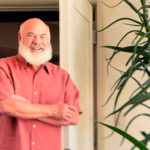Good Business

By Andrew Weil, M.D.
What’s the best way to improve the world?
Of course, “improve” means different things to different people, so let me be clear: What’s the best way to move from a wasteful, polluting, unhealthy, short-sighted and authoritarian society to an efficient, clean, health-promoting, sustainable and empowering one?
Traditionally in our society, the heavy lifting of such reform has been done by government agencies such as the Environmental Protection Agency, and by nonprofit groups such as the Sierra Club. But politics can stifle government efforts at environmental and health reform. And nonprofits, while extraordinarily valuable, often lack the money, manpower and expertise to make significant change.
Increasingly, I feel that if the world is to be improved, it won’t happen outside the bounds of capitalism. At the start of the third millennium, it seems clear to me that ethical, for-profit businesses just might be the last, best hope for the planet.
According to the book Natural Capitalism by Paul Hawken, Amory Lovins and Hunter Lovins, we are in the midst of a second Industrial Revolution. The first one was devoted to gaining mastery over the material world and accumulating wealth – environmental and health consequences be damned. But the current revolution is aligning itself – as successful businesses have always done – with what people want now. And increasingly, what people want is a world that is healthy and safe for them and their children.
We are moving from a consumptive economy to a restorative economy. A restorative business is one that makes a good product that a sustainable world needs, pushing out unsustainable products in the process. Some restorative businesses also donate a portion of their profits to non-profit organizations, doubling their effectiveness.
You don’t have to look far to find other businesses that lead this movement: Smith and Hawken (sustainable, durable home and garden products), and Patagonia (organic cotton clothing), are highly public examples. And such businesses need not be small: the Prius hybrid sedan, from automotive giant Toyota, is the highest-mileage (and fastest-selling) car in America.
I believe that the time is coming, albeit slowly, when such businesses will be the rule rather than the exception. I want to accelerate that process. So when people ask me why my name and face are on commercial products, the answer is straightforward.
First, every product, and every manufacturer, that licenses my name is a restorative one, actively engaged in making the world better. (See a list of Dr. Weil’s current partners.)
Second, I personally make nothing from these endorsements. I donate all of my after-tax profits from royalties from sales of licensed products directly to the Weil Foundation, a not-for-profit organization dedicated to supporting integrative medicine through training, education and research.
Now, I’m very pleased to announce that the Weil Foundation’s website has just undergone a major redesign that allows us to better share its mission and vision. Please visit and explore the new articles and graphics there – they illuminate precisely how the Foundation supports the spread of integrative medicine through education and research. If you like what you see, please consider making a donation to further the cause.
The challenges before us are immense. The best efforts of all kinds of enterprises – governmental, nonprofit, and for-profit – are sorely needed. I have been active in all three arenas in the course of my 40-year medical career, and will continue to be so. I am proud to be associated with these superlative businesses, and pleased that their use of my name may contribute in some small way to their success, and to the success of the Weil Foundation’s goal of improving medical care.









